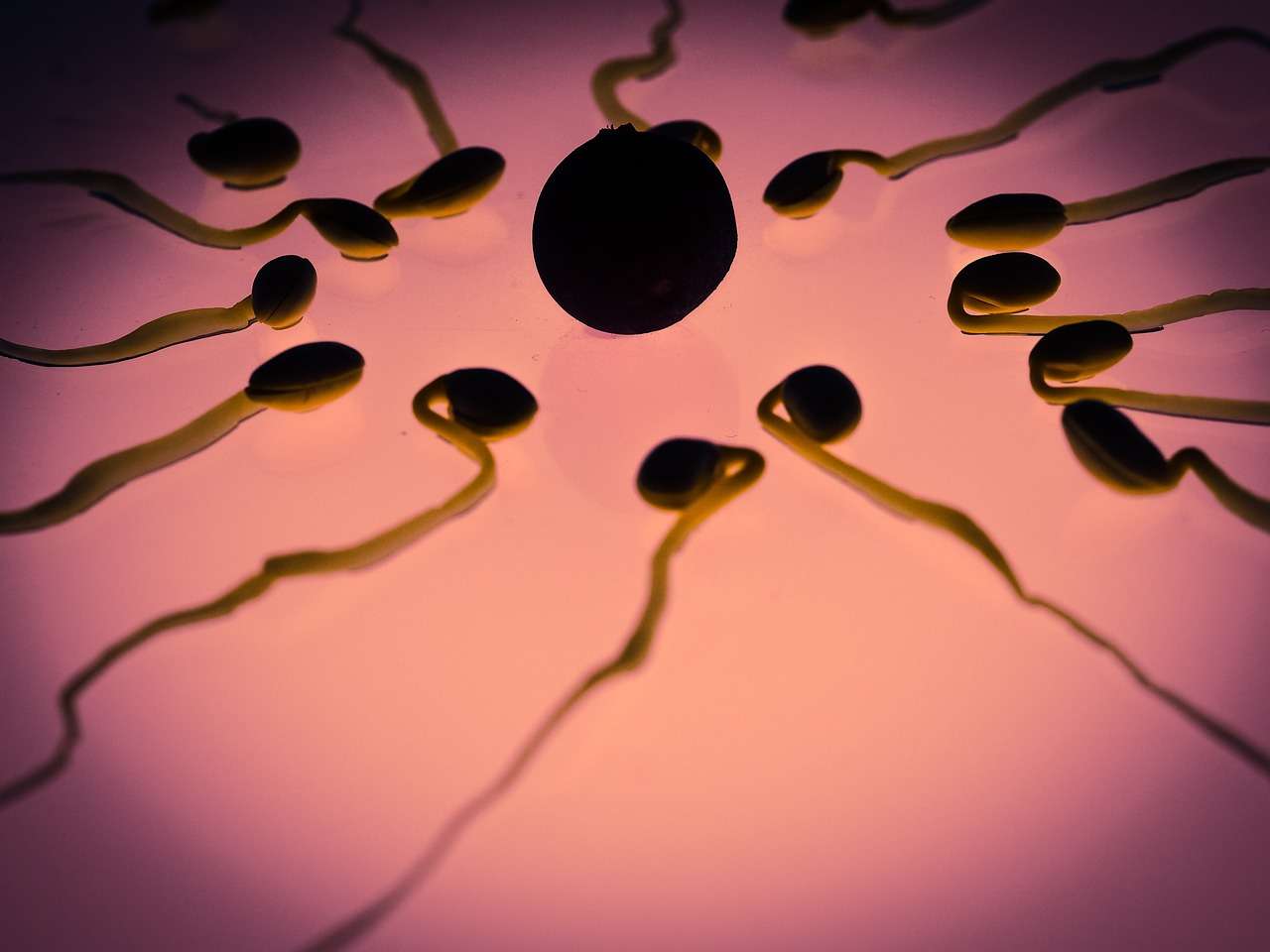Did you know male fertility is one of the biggest factors impacting conception for couples trying to conceive?
There are over 3 million couples struggling to conceive and secondary infertility affects 1 in 5 of us. However, there are many things you can do to increase sperm count with simple lifestyle changes that are inexpensive and involve tweaking certain habits or learning a little bit more about how to work with your bodies and natural cycles.
When searching for ways to increase your fertility, the vast amount of information out there can feel overwhelming and confusing.
The ten tips below however from My Expert Midwife – experts in all things from pre-conception through to pregnancy, childbirth, early parenthood and baby and producers of natural skincare products and supplements – give essential, evidence-based information to help boost your fertility and improve your chances of conceiving.
Eat like you are on the Med
Men as well as women need the right nutrition to achieve and maintain optimal health and to boost their fertility.
A poor diet can affect hormonal function, disrupt ovulation and cause problems related to sperm’s quality and fecundability (sperm’s ability to fertilise an egg and result in a pregnancy), all of which can reduce your chances to conceive. A few simple changes can improve your chances of becoming pregnant and pave the way for a healthy pregnancy
Adopting a Mediterranean-style diet, which is full of fresh fruit and vegetables, healthy fats, whole grains, fish and seafood, with some poultry and dairy products and only limited quantities of red meat – has been shown to improve fertility.
Have regular sex
The evidence is fairly clear on this: couples that are having regular sex, 2-3 times a week, significantly boost their chances of getting pregnant.
When a woman releases an egg from one of her ovaries (ovulation), the egg only has 12-24 hours to be fertilised. But, because sperm can survive inside her reproductive system for up to 5 days, having regular sex will mean that, in theory, there will always be a few (million) live sperm around to fertilise her egg when it is released. Because of this, if you have sex, on average, three times a week you will significantly boost your chances of becoming pregnant.
But try not to plan or schedule sex for a specific day or time of day, as this can be detrimental to your relationship and to love-making itself, creating stress and anxiety within the couple and, potentially, causing performance problems in the bedroom!
Eat your nuts
Research shows that eating a daily portion (75 grams) of walnuts improves sperm motility (their ability to move), vitality and health. Scientists also found that men who ate about two handfuls of mixed almonds, hazelnuts and walnuts daily for 14 weeks produced more and healthier sperm than those who didn’t eat the nuts.
Supplement with essential vitamins & minerals
Getting the correct nutrition from your diet in pregnancy is vital. However, not everyone eats a well-balanced diet, whether this is through choice or circumstance.
Men should make sure they and their sperm are in the best possible health to maximise their partner’s chance of getting pregnant each month.
Research from My Expert Midwife found that men were less savvy than women when it came to fertility nutrition, with just 30 percent of men surveyed saying they took a food supplement when trying to conceive, despite 72 percent agreeing that what they eat and drink could affect their fertility. 29 percent admitted that they weren’t sure what nutrients were needed to support healthy sperm or fertility.
A daily supplement can help optimise male fertility and sexual function, containing vitamins and minerals known to help sperm and male reproductive health. My Expert Midwife’s pre-conception supplement for men is midwife and dietitian-developed and provides expert support to safeguard nutrition when trying to conceive. The specialist vegan, natural and plant-based supplement can be taken up to three months before you start trying to conceive and helps deliver daily nutritional requirements, getting you in to the best possible nutritional condition to conceive.
Work towards a healthy weight
In men, excess body fat has been linked with higher levels of oestrogen and changes in testosterone levels, lower sperm counts, poor sperm motility, erectile dysfunction and increased temperature of the testicles.
Break bad-habits
Smoking, alcohol and drugs can have a negative impact on male fertility and increase the chances of miscarriage.
The DNA in the sperm is damaged when men smoke and this not only lowers their chances of conception, but it also increases the risk of miscarriage.
The advice on alcohol consumption is different for men and women. For men, fertility doesn’t seem to be affected as long as they drink within the recommended guidelines of 14 units/week (equivalent to 6 pints of average-strength beer) and spread their alcohol intake through the week. Problems with sperm quality, sex drive and performance start to arise when men binge drink or regularly exceed the recommended guidelines.
Illegal drugs can comprise male fertility and increase risks in pregnancy. Drugs like cannabis or cocaine can negatively affect testosterone levels, sperm quality and sex drive in men.
Move your body
Engaging in regular exercise results in improved sperm count and sperm health. You are more likely to stick with it if you choose something you enjoy doing, so try different things and mix it up a bit to keep it interesting.
Clean-up on toxins
Environmental pollutants and toxins are everywhere, from the air we breathe to household cleaning products, paints, plastics and pesticides. Because these can all have adverse effects on a couple’s fertility, opting for organic produce and environmentally friendly or, better still, homemade cleaning products can significantly improve your health and your fertility.
Less pressure
The best thing you and your partner can do is relax, have fun and enjoy your relationship without worrying or fixating on becoming pregnant. Feeling stressed and anxious can lead to the release of hormones which are not helpful and which suppress those hormones that are needed to conceive a baby.
Keep them loose, keep them cool
Testicles hang from the body because they need to be kept cooler for optimal sperm production. Men who wear tight underwear are more likely to produce less sperm that don’t move as well as men who wear loose-fitting underwear. The slight but significant increase in temperature of the testicles caused by them being close against the body for prolonged periods of time is thought to be the cause of this. Therefore, when looking at improving your fertility, your best bet is to keep your testicles cooler by having cooler baths and showers, keeping the area away from direct heat, wearing loose-fitting pants like boxer shorts and favouring trousers that give your genitals plenty of room.







